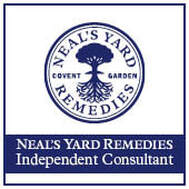Professional Essential Oil Therapy
(including but not exclusively Aromatherapy)
Helen is a registered (and insured) student with the International Federation of Aromatherapists and studying Professional Essential Oil Therapy (PEOT). Unfortunately she is currently unable to offer this therapy to the general public until 2017. However she will be enlisting the help of a lot of volunteers throughout her (supervised) training and research.
Many people will think of a relaxing or invigorating aromatherapy massage when considering essential oil therapy. However, although PEOT can include the use of essential oils for massage, the therapeutic properties of essential oils can be absorbed and delivered in a multitude of ways and for a multitude of physical and psychological issues. The aim of Essential Oil Therapy is to develop the most effective blend, delivered in the best way, for the client's needs.
PEOT involves a personal assessment to ensure individualised, complementary essential oil remedies are available to the client. More than one appointment is likely in order to ensure the client not only receives an effective formula but one that they really like to use. When Therapist and client are happy with the product the client will be able to purchase their personal "recipe" to apply/use themselves as agreed appropriate. This could be in the form of a blended cream, patch, inhalation, bath oils, salt scrubs, potli, massage oil etc
Individuals will be asked to undergo a detailed assessment with the therapist and may be asked for GP / Consultant agreement where a client is already undergoing medical treatment or investigation of symptoms. It is important in PEOT to not only understand the powerful therapeutic effects of essential oils and the safe quantities to blend but to also understand contraindications and have a sound knowledge of anatomy, physiology, disease and disorder in order to ensure appropriate therapy and advice is delivered.
Essential oil products are NOT intended as an alternative to seeking medical advice and treatment but are aimed at complementing traditional medicine.
Oils will be blended for the individual. No pre-blended oils (other than those made by the therapist) will be used in your personalised product to ensure origin, source and oil quality is optimum.
We are able to provide clients with products from other companies such as Neals Yard Remedies Organic who we believe supply ethical products however this would not be part of a personal PEOT consultation and product development.
Many people will think of a relaxing or invigorating aromatherapy massage when considering essential oil therapy. However, although PEOT can include the use of essential oils for massage, the therapeutic properties of essential oils can be absorbed and delivered in a multitude of ways and for a multitude of physical and psychological issues. The aim of Essential Oil Therapy is to develop the most effective blend, delivered in the best way, for the client's needs.
PEOT involves a personal assessment to ensure individualised, complementary essential oil remedies are available to the client. More than one appointment is likely in order to ensure the client not only receives an effective formula but one that they really like to use. When Therapist and client are happy with the product the client will be able to purchase their personal "recipe" to apply/use themselves as agreed appropriate. This could be in the form of a blended cream, patch, inhalation, bath oils, salt scrubs, potli, massage oil etc
Individuals will be asked to undergo a detailed assessment with the therapist and may be asked for GP / Consultant agreement where a client is already undergoing medical treatment or investigation of symptoms. It is important in PEOT to not only understand the powerful therapeutic effects of essential oils and the safe quantities to blend but to also understand contraindications and have a sound knowledge of anatomy, physiology, disease and disorder in order to ensure appropriate therapy and advice is delivered.
Essential oil products are NOT intended as an alternative to seeking medical advice and treatment but are aimed at complementing traditional medicine.
Oils will be blended for the individual. No pre-blended oils (other than those made by the therapist) will be used in your personalised product to ensure origin, source and oil quality is optimum.
We are able to provide clients with products from other companies such as Neals Yard Remedies Organic who we believe supply ethical products however this would not be part of a personal PEOT consultation and product development.
A note from Hathi Therapies!
PLEASE think before heading to the health food shop for essential oils and making homemade remedies and especially then digesting them! Be aware that there is some misleading information out there.
Firstly, beware the term "Therapeutic Grade" it's a commercial term to suggest it's a better product! It is NOT a clinical term and does not mean it is necessarily any better or safer than another. What is more relevant as to whether an oil is a good oil is going to be a combination of information such as whether it has been adulturated, what its origin is, its botanical name, method of extraction, date of production and how it has been stored. Expensive doesn't necessarily mean good quality either but cheap definitely doesn't mean good quality!
Secondly, we would never recommend ingestion of an essential oil. Essential oils are powerful chemicals with some amazing therapeutic effects. However they need to be used carefully & sensibly, and just adding a drop to a drink is not sensible! For starters they are VERY concentrated extractions from plants and trees. For example, there's in the region of 60 roses needed to produce 1 drop of essential rose oil and that's not even 1 ml! (This is also one reason why some oils such as rose will be more expensive than others)
Thirdly, we may be led to think that "natural" is better than "man made"; just because an essential oil comes from a natural source doesn't automatically mean it's healthy and safe. There is a reason a packet of paracetamol tells you to only take two every four hours etc: in large quantities they damage the liver! Ibuprofen, another example, is contraindicated in Asthma and interacts with aspirin and ginkgo biloba. However used correctly they are considered safe to use, hence we can buy them over-the-counter. Like synthetic drugs, essential oils can also have side effects and contraindications and can be toxic when used incorrectly. Peppermint oil for instance is commonly used in indigestion products and is know as an effective antiseptic etc. It would therefore be understandable to assume its a safe oil (and it is when used correctly). But did you know the menthol in peppermint in large doses is toxic. Also, that not all mints are the same; there is one particular mint genus which is very poisonous when ingested or used topically.
This is not to say that you shouldn't go out and buy products containing essential oils! When blended professionally they can be very beneficial when used as per instructions. don't assume that because something is from a natural source that it is good for you. They key is to always buy from reputable source and do some thorough homework
We love essential oils! Nature has given us some amazing, beautiful and beneficial plants and trees but remember that not everything from nature is good for us.
Be safe. Be healthy!
Helen is also able to provide you with essential oils, pre-blended oils and products via her Neal's Yard shop https://uk.nyrorganic.com/shop/hathi-therapies
PLEASE think before heading to the health food shop for essential oils and making homemade remedies and especially then digesting them! Be aware that there is some misleading information out there.
Firstly, beware the term "Therapeutic Grade" it's a commercial term to suggest it's a better product! It is NOT a clinical term and does not mean it is necessarily any better or safer than another. What is more relevant as to whether an oil is a good oil is going to be a combination of information such as whether it has been adulturated, what its origin is, its botanical name, method of extraction, date of production and how it has been stored. Expensive doesn't necessarily mean good quality either but cheap definitely doesn't mean good quality!
Secondly, we would never recommend ingestion of an essential oil. Essential oils are powerful chemicals with some amazing therapeutic effects. However they need to be used carefully & sensibly, and just adding a drop to a drink is not sensible! For starters they are VERY concentrated extractions from plants and trees. For example, there's in the region of 60 roses needed to produce 1 drop of essential rose oil and that's not even 1 ml! (This is also one reason why some oils such as rose will be more expensive than others)
Thirdly, we may be led to think that "natural" is better than "man made"; just because an essential oil comes from a natural source doesn't automatically mean it's healthy and safe. There is a reason a packet of paracetamol tells you to only take two every four hours etc: in large quantities they damage the liver! Ibuprofen, another example, is contraindicated in Asthma and interacts with aspirin and ginkgo biloba. However used correctly they are considered safe to use, hence we can buy them over-the-counter. Like synthetic drugs, essential oils can also have side effects and contraindications and can be toxic when used incorrectly. Peppermint oil for instance is commonly used in indigestion products and is know as an effective antiseptic etc. It would therefore be understandable to assume its a safe oil (and it is when used correctly). But did you know the menthol in peppermint in large doses is toxic. Also, that not all mints are the same; there is one particular mint genus which is very poisonous when ingested or used topically.
This is not to say that you shouldn't go out and buy products containing essential oils! When blended professionally they can be very beneficial when used as per instructions. don't assume that because something is from a natural source that it is good for you. They key is to always buy from reputable source and do some thorough homework
We love essential oils! Nature has given us some amazing, beautiful and beneficial plants and trees but remember that not everything from nature is good for us.
Be safe. Be healthy!
Helen is also able to provide you with essential oils, pre-blended oils and products via her Neal's Yard shop https://uk.nyrorganic.com/shop/hathi-therapies

